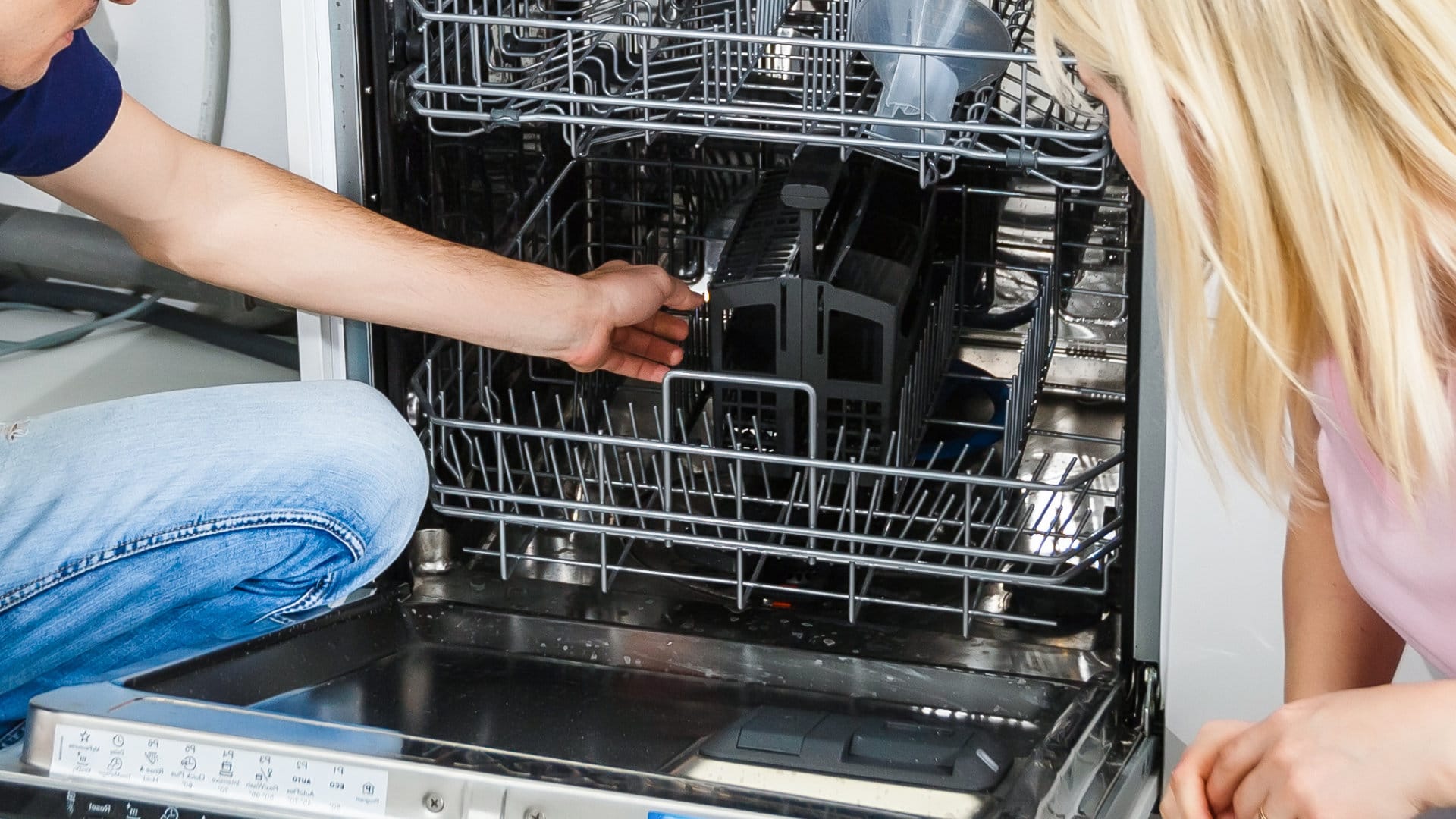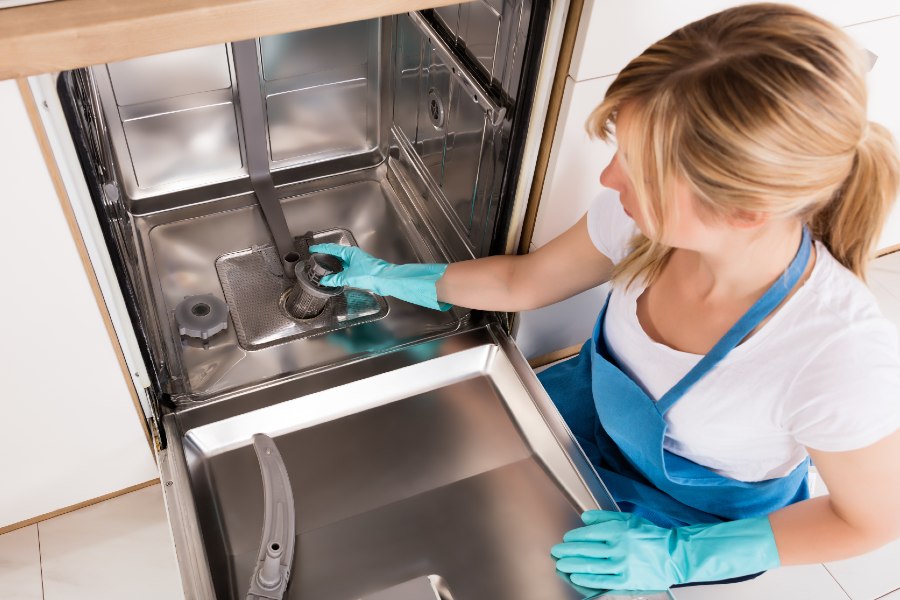Diagnosing My Dishwasher: Why Could Be Causing the Issues
Diagnosing My Dishwasher: Why Could Be Causing the Issues
Blog Article
Are you currently interested in advise on How to Troubleshoot & Repair a Dishwasher?

Having your dish washer malfunction or malfunction can be a big deal and cause some pain in the house. Dish washers are makers that we use to tidy dishes and flatwares automatically to conserve us the anxiety of manually doing it.
Like every other equipment that relieves human effort, dish washers can break down and create some fault eventually in time. There are numerous mistakes your dish washer can develop, as well as while a few of them can be resolved by replacing some parts or fixing them, other more severe problems will require that you get a brand-new dish washer.
This write-up will identify a couple of common mistakes your dish washer might develop to prevent its total performance as well as exactly how these mistakes can be solved.
Typical Faults
Typical dishwashing machine mistakes might range from minor to significant ones. Relying on the level, you will certainly either need the services of specialist plumbers to fix or change it.
A few of the most usual faults include:
Dripping Dishwashing machine
This is probably one of the most daily dishwasher trouble, as well as the good news is that it is simple to identify. Leakages occur as a result of several reasons, and also the leakages can bungle your kitchen. Usual root causes of dish washer leakages include;
If your recipes and cutleries appear of the dishwasher as well as still look dirty or unclean, your spray arms might be an issue. Oftentimes, the spray arms can get blocked, as well as it will call for a fast clean or a replacement to function properly once more.
Inability to Drain pipes
In some cases you might discover a large quantity of water left in your bathtub after a clean. That is possibly a water drainage trouble. You can either examine the drainpipe pipe for damages or obstructions. When in doubt, contact a professional to have it examined and also taken care of.
This is another usual dishwashing machine problem, and also it is generally caused by food particles or grease sticking around in the maker. In this case, try to find these particles, take them out and also do the dishes with no dishes inside the maker. Wash the filter completely. That will certainly help remove the bad odor. Make certain that you remove every food bit from your recipes before moving it to the machine in the future.
Final thought
Several of these common dish washer mistakes can be repaired quickly in the house, but in many cases, the faults could be massive and also may need the attention of professionals. If you stay in Rochester, Syracuse, and also various other parts of America, let the specialists effectively identify what could be incorrect with your dishwashing machine and proffer an option.
We additionally mount dishwashers if you simply got a brand-new one or intend to replace your own. With our several years of experience in the industry, we make certain to offer you the most effective possible solutions.
8 Most Common Dishwasher Problems & How to Fix Them
My Dishwasher Isn't Draining
If your dishwasher isn't draining properly, you may be having an issue with your dishwasher's drainage system. This can be caused by a variety of issues:
Clogged drain: The dishwasher's drain may be clogged with food particles or other debris. Malfunctioning pump: The dishwasher's pump is responsible for moving water through the system and out of the drain. If it's damaged or not working correctly, it could cause a drainage failure. Broken or clogged hose: The dishwasher's drain hose may be broken or clogged, causing water to back up in the system. How to Fix Dishwasher Not Draining
Check the drain for any blockages. A clogged or kinked hose will prevent water from properly draining out of the dishwasher. Use a plunger or a pipe snake to clear any debris that may be blocking the drain. Check the dishwasher's pump for damage or malfunction. Consult the manufacturer's manual or call a professional appliance repair service if you think the pump may be the issue. Check the drain hose for any damage or blockages. The hose should be straight and free of any debris or kinks. Check the drain pump filters for any blockages if the hose is clear, but the dishwasher is still not draining. Some dishwashers have filters that can become clogged with food particles or debris. Cleaning or replacing the filters may help resolve the issue. Run a dishwasher cycle to make sure the water is properly draining out. My Dishwasher Is Leaking
A leaking dishwasher can be frustrating. There are a few possible causes that you can investigate to try and diagnose the issue:
Inspect the dishwasher for any visible signs of damage or wear and tear. Look for cracks or holes in the door and around the rubber seal. Check the hoses and pipes connected to the dishwasher for any signs of leaking. If there is no visible damage, you may hear the sound of water dripping or the sound of the water pump running. This might mean a problem with the water inlet valve or the drain pump. You may also notice a puddle of water on the floor near the dishwasher. This could indicate a blocked drain hose or a faulty drain pump. Finally, check the seals around the door and the door for any signs of damage, wear and tear, or improper installation. If any of these issues are present, they must be fixed immediately to avoid further water damage. How to Fix a Leaky Dishwasher
Identify where the leak is coming from. The most common places for a dishwasher to leak include the door, hoses, and pump. If the leak is coming from the door, the gasket or seal may need to be replaced. If the leak is from the hose or pump, the damaged parts should be replaced with new ones. Finally, check all the connections and make sure they are secure and not leaking How to Fix a Dishwasher That Won't Start
The perfect remedy for a dishwasher that won't start is confirming all the components are in perfect working order and that the wiring is in good condition. Next, inspect the motor and replace it if necessary.
If these steps do not resolve the problem, contact a professional appliance repair technician to diagnose and fix the issue.
Conclusion
Most dishwashers are reliable appliances with a long lifespan. As with all devices, checking your dishwasher regularly will help you quickly identify any issues and ensure that it is running efficiently.
And if you're in the market for a new dishwasher, don't let dishwasher problems ruin your day. Upgrade to a reliable, efficient model today! Check out our full selection of top-quality dishwashers that includes a range of styles and features to suit any budget and household needs.
https://www.coastappliances.ca/blogs/learn/common-dishwasher-problems

I hope you liked our part on The Most Common Dishwasher Problems. Thanks so much for taking the time to browse our short article. Sharing is good. You just don't know, you could be doing someone a favor. Thank-you for your time spent reading it.
Connect for clarity. Report this page